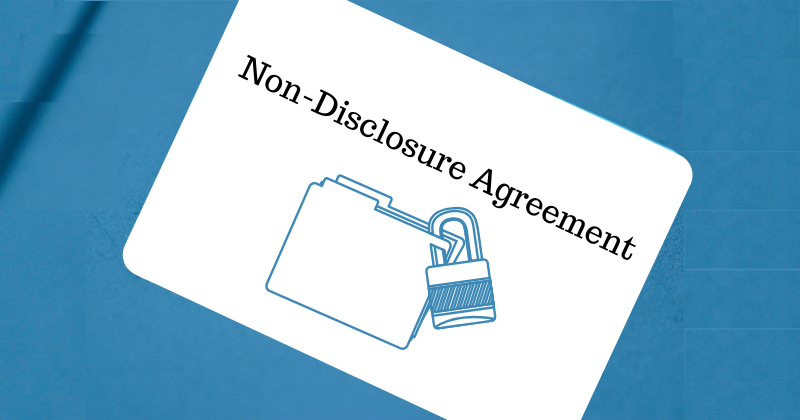
I often talk about the “Great American Dream,” owning your own business. And that the fastest way to own a business is to buy an already existing business. Buying or selling a business should be handled carefully and efficiently. When discussing how to buy or sell a business, I recommend that both parties in the purchase of a business should sign a non-disclosure agreement (NDA) to protect you and your business in case the sales deal does not happen.
What Is A Non-Disclosure Agreement?
A non-disclosure agreement is a legally binding contract where the parties agree not to disclose confidential information that they have shared with each other as a necessary part of doing business together.
For business buyers and sellers, negotiating the sale of a business can involve proprietary, sensitive, confidential information on virtually any area pertaining to the business such as:
- trade secrets
- new product releases
- financials
- inventory and sales figures and projections
- test results
- marketing data
- customer lists
- staff, consultants and advisors
- innovations, trademarks, patents and copyrights
- pricing
The NDA will also identify who the parties are that are covered by the non-disclosure agreement.
5 Reasons to Sign a Non-Disclosure Agreement
1. NDAs Protect Sensitive Information
Whether your buyer is a competitor or someone new to the business, you will have competitive information about your business that a buyer needs to know as part of the valuation and due diligence. When you sign an NDA, each party agrees not to divulge, share or release any information shared with them during the sales, valuation and due diligence process. If the information is leaked – deliberately or accidentally – the injured party can claim breach of contract and sue for damages.
2. Protect Patent Rights
Public disclosure of a new invention can void patent rights. A properly drafted NDA can help the original creator hold onto the rights to a product or idea, says Rocket Lawyer.
3. What Confidential Information is Included – and What Isn’t
Not all information you tell a potential buyer about your business is considered confidential and sensitive. An NDA that explicitly states what information is considered sensitive and confidential and is covered in the NDA protects the seller. When a prospect signs the NDA, the seller can share sensitive information in good faith and with legal protections.
4. The Buyer Has Access to Information
By signing an NDA, the business buyer has access to data about the business that a seller would not share openly.
5. The Buyer Shows They Are a Serious Buyer
Often potential buyers are not serious buyers – they are fishing for competitive information about your business. By agreeing to and signing an NDA, the buyer is demonstrating they are seriously interested in the business.
Download My Free Checklist:
7 Key Points in a Non-Disclosure Agreement
Free Download: Save a copy of this checklist I made:
7 Key Points in a Non-Disclosure Agreement
Read More:
- Should You Sell Your Business to a Competitor?
- Is It Time to Sell Your Small Business?
- How to Determine the Value of Your Small Business
- How to Find a Buyer for Your Small Business
Subscribe to My Newsletter with Weekly Sales Tips
and Get A Your Free Audio Report: Mixing The Perfect Sales Cocktail

